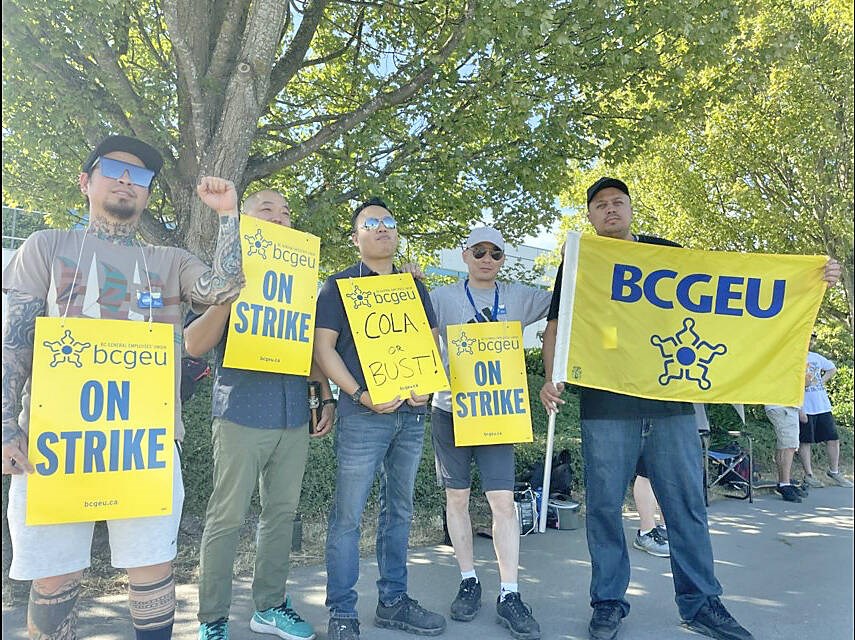The B.C. General Employees’ Union has voted to hold rotating strikes. The first of these actions began on Monday with picket lines at four B.C. Liquor Distribution Branch centres in Victoria, Delta, Richmond and Kamloops.
While the immediate impact will fall both on customers at these branches, and on government revenues, there is a potential for wider repercussions. Privately owned beer and wine stores are required to buy most of their products from the B.C. liquor agency. It is unclear whether these supplies will be affected by the strike.
This is surely one of the least well-timed industrial actions in recent B.C. history.
The province is struggling to respond to a brutal COVID pandemic still ongoing. Major sections of our economy remain under water.
Food stores are suffering shortages of even the most basic commodities. The airline industry is crippled. Ferry wait times are sky-high, as staff cannot be found to fill vacancies.
Our health-care system is in disarray. Hospital and nursing home staff are at their wits’ end.
Was this really the ideal time to call a strike?
BCGEU president Stephanie Smith says wage protection is the main issue, as inflation rates continue their upward climb. That seems fair. But what precisely does she want?
The union’s initial proposal was for a two-year deal, with a full cost of living increase in each year. But now that negotiations have dragged on, union representatives have declined to make known their current stance, other than to repeat concerns about cost-of-living protection.
We know what the government has offered. For employees making $35,512 annually, the first year lift is set at 4.29 per cent, rising to a three year hike of between 11 and 12 per cent.
For workers earning $59,289 annually, the first year raise is 3.77 per cent, cumulating to between 10 and 11 per cent over three years.
Employees making $90,884 per year are offered a 3.5 per cent increase in the first year, with between 9.5 and 10.5 per cent over three years.
And all three groups will receive a $2,500 signing bonus. That’s worth an additional four per cent in the first year for the average employee.
These are scarcely niggling offers.
As well, there is the difficult reality that public-sector workers enjoy considerably more favourable terms of employment than comparable wage earners in the private sector.
A recent study reported by Benefits Canada found that 91.8 per cent of government employees in B.C. are covered by a registered pension plan, compared with just 17.7 per cent of private-sector workers.
Along with much greater job security, benefits like this tend to be left out of the calculation when public service compensation is being negotiated.
We understand fully the responsibility placed on the union bargaining team to get the best possible deal for their members.
But is this the moment for some of our community’s best-paid and most job-secure members to walk off the job?
There is damage here, and not just to the institution of public service. The union’s leadership must weigh carefully the demands they will push, at a time when British Columbians in other walks of life are sacrificing to make ends meet.
>>> To comment on this article, write a letter to the editor: letters@timescolonist.com



